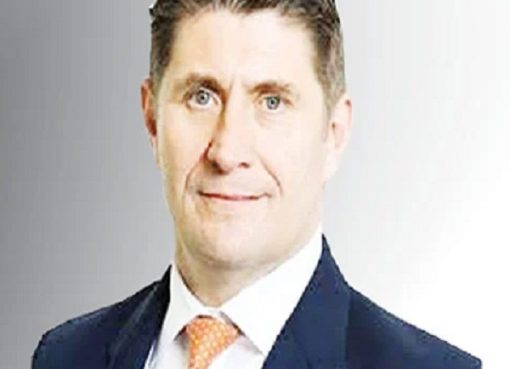The Executive Secretary, Association of Power Generation Companies, Dr Joy Ogaji; electricity generation capacity has increased significantly after the privatisation of the power sector
The power sector is plagued by a liquidity crisis; what do you think can be done to resolve this?
To solve the liquidity challenge, we need a strong political will to enforce market coordination and discipline. If there are discipline and proper market coordination, liquidity will improve because there is power. Nigerians are consuming the power and they claim they are paying, so something must be wrong as power is flowing on one side but money is not flowing back to where the power came from. The issue of cost-reflective tariff can be solved. Up till now, we don’t know the number of people who are consuming power. How do you determine appropriate tariff when since 2013 till date electricity distribution companies do not know their customers? So, each time we hear about the cost-reflective tariff, we need to know the number of customers in Nigeria. There are so many things that are not working. Generation is increasing, consumers are ready to consume, but we are not able to distribute it to them on the complaint that there is no cost-reflective tariff.
The Discos and some other stakeholders have been calling for a cost-reflective tariff; do the Gencos think that the current tariff is cost-reflective?
How do I know if the tariff currently is cost-reflective when I don’t know the number of customers or consumers? Knowing the number of customers is a critical element in determining the tariff, and the volume of power taken also affects the tariff. I have 7,000 megawatts but 3,000MW are what will be used to calculate the tariff instead of the 7,000MW that I have. So, if you ask me whether the tariff is cost-reflective, I don’t know because there is no data. Data scarcity is a major problem.
One of the challenges that Gencos complained about in the past was that the gas they were buying was denominated in dollar; is that still an issue?
It is still an issue. It is unfortunate that the power sector, which is critical to the development of the economy, does not have any access to foreign exchange. People have access to cheaper forex to go for pilgrimage but the power sector does not have. We access forex through the parallel market and you know that about 60 per cent of everything we do in the power sector is dollar-denominated. Our operation and maintenance costs and technical services are all dollar-denominated. All the equipment we use is not made in Nigeria; we buy them from outside and they are dollar-denominated. Meanwhile, we don’t have access to forex to do our business but we sell in naira. The minister of power, the Central Bank of Nigeria, and the Ministry of Finance are aware of our challenges; we are just waiting for action.
Are there other major challenges that the Gencos are facing?
A major challenge is that we have so much power available but it is not being utilised. Consistently, from January to December 2018, we had an available generation capacity of 7,000MW and above, but the system was taking a maximum of 4,000MW. So, does that incentivise any investor to increase again? There is no incentive to increase generation or to expand capacity because as we are increasing, they are not taking it. From 2013, the power taken did not change at all. It was just hovering around 3,000MW until it rose to 4,000MW in some days, out of over 7,000MW of available generation capacity. And who pays for the difference? No one. That is why the system can just continue to reject load because nobody is paying for it; if you are paying for it, you will be compelled to take more.
So, the Nigerian Electricity Regulatory Commission needs to stand up and make the Discos take as much as is available because that is why the Gencos signed their performance agreements.
On Thursday, the National Leader of the All Progressives Congress, Bola Tinubu, said the Federal Government should revisit the privatisation of the sector; what is the Gencos’ take on this?
The privatisation of the sector, for the Gencos, is a success. When we took over, power was about 4,000MW; right now, available power is over 7,000MW. We have an installed capacity of 13,460MW. So, there is a lot of growth but we are having a dispatch problem. The power is available, but it’s not being taken. As you know, we cannot bottle power. Power is instantaneous; as you are generating, you consume. For the Gencos, we have a pass mark; you can confirm from the Bureau of Public Enterprises and NERC.
What do you think needs to be done to ensure that the unutilised capacity that the Gencos have is put to use?
What can be done is for the government to focus and see if the distribution and transmission companies are really telling us the truth. This is because the Discos say they have the capacity to take up to 6,000MW from us and the Transmission Company of Nigeria says it has the capacity to take 8,100MW from us. The question is: Why are they not taking it? Why is there so much stranded capacity?
In pursuing the current administration’s agenda of incremental power, there is a need for optimal utilisation of what is available and the need to recover the installed capacities, leading to a decrease in stranded or unutilised load/power. This calls for phased and well-planned utilisation.
The emphasis/solution here is phased planning of the generation capacities in view of the fact that even what is available plus installed are not enough to meet demand forecast, which stands at over 22,000MW.
There is a need for massive investment in transmission and distribution networks in the country. The Gencos have the capacity to increase their output in the near term. However, an increase in power generation without a resultant increase in TCN’s wheeling capacity and improved distribution infrastructure will continue to lead to stranded power generation.
In 2017, the Minister of Power, Works and Housing, Mr Babatunde Fashola, made a declaration that permitted some electricity customers to buy power directly from the Gencos; have the Gencos seen any improvement as a result of that?
Eligible customer policy was not introduced to punish the Discos or to make the Gencos better; it is captured in the Electric Power Sector Reform Act of 2005. The Act clearly states that upon privatisation, three categories of customers will buy power from Gencos: eligible customers, distribution companies and trading licensees. On the day that the distribution assets were handed over to the core investors, the 132kV and 330kV customers were not handed over to them because they are not within the network of the Discos. According to EPSRA, distribution network starts from 33kV and below while the 132kV and 330kV are high-voltage customers above the distribution network. So, there is no way people that are above you will be your customers. The distribution companies were appointed as collection agents in 2015 for them to collect money on behalf of the market from those customers; they are not their customers.
How are the debts owed by the Nigeria Bulk Electricity Trading Plc affecting the operations of the Gencos?
The debts owed to Gencos are increasing every month. Every month, the market invoices about N55bn to the Discos, but what they are paying is about 24 per cent of that. The Federal Government intervened by bringing out N701bn to help pay for part of the money that Gencos are owed from January 2017 to December 2018. That money was exhausted in December last year. Every month, Gencos are owed an average of 71.28 per cent of our invoices, and we are expected to increase generation. This is impacting us seriously. With 85 per cent of the generation coming from gas, we are not able to pay the gas suppliers. Some of them have stopped supplying gas to us. Some Gencos that can access loans are taking loans to buy gas so that they can keep generating electricity because if we don’t generate, we will be called saboteurs. Others who cannot access loans are just sitting down and waiting; their plants are lying idle. So that is where we are: suffering and smiling..
Source: Punch












26 thoughts on “Privatisation Of Power Sector, A Success For Gencos — Ogaji”